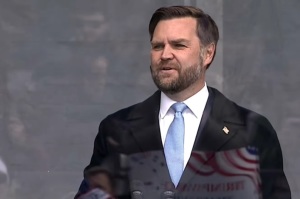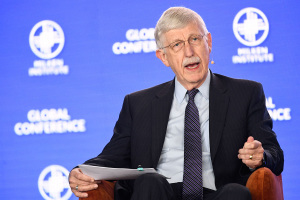Free trade is Biblical
National conservatives claim they want to establish a Christian nation in the U.S. One of their policies is to implement America-first trade policies, meaning the exchange of free trade for “fair” trade. In July, Robert Lighthizer, who served as U.S. Trade Representative under President Trump, stumped for America-first trade policies at the Intercollegiate Studies Institute’s “American Economic Forum.” He said of free trade:
“It destroyed many of our communities, crushed our families and contributed to opioid addiction and the explosion of so called ‘deaths of despair.’ Now I am not saying that extremist free trade was the only cause of these crises, but I am saying it was a major factor.”
Before such Christian nationalists try to change the U.S., they need to read their Bibles. One of the Ten Commandments of which national conservatives are so proud is “Thou shalt not steal.” The chain of logic from that command to free trade is not so long. The command to not steal means that people must trade with others to get what they want. They must exchange their labor for the labor of others. Fraud of any kind is a form of theft. Coercion of any kind is a form of theft. What about fair trade?
Theologians debated for more than a millennium what fair trade might mean. They called it a just price. By the 16th century, during the Reformation, at the University of Salamanca, Spain, theologians settled the fair-trade dispute by asserting that the only just price in market exchanges is found in a free market without coercion. If one party coerced the other, the exchange wasn’t fair and the party coercing the other was a thief.
But what if the government does the coercing? The Salamancan scholars limited the power of the state to only punishing criminals who violated the rights to life, liberty and property of others, including the state. Those scholars argued from the natural theology, but the same principles exist in the Bible. The state has no authority to steal from private citizens. So, it has no authority to coerce individuals or companies who want to trade with each other. It’s not difficult to extend the principle to those who want to trade with their counterparts in other countries.
What about Lighthizer’s argument that free trade “crushed our families and contributed to opioid addiction and the explosion of so called ‘deaths of despair?’” If he would read his Bible, he would know that economic policies, even if harmful, cannot do what he claims they did. The social breakdown in the U.S. comes from rebellion against God by many of the citizens. Read Romans 1:28-31, for example:
“God gave them up to a depraved mind, to do those things that are not proper, people having been filled with all unrighteousness, wickedness, greed, and evil; full of envy, murder, strife, deceit, and malice; they are gossips, slanderers, haters of God, insolent, arrogant, boastful, inventors of evil, disobedient to parents, without understanding, untrustworthy, unfeeling, and unmerciful;”
And that includes drug use and suicide. Does Paul say people turned evil because of trade policies? No. God allows people to do what they want to do, to be themselves, when they reject Christ as God, and social breakdown is the consequence. Since economic policies aren’t the cause, they can’t be the solution, either.
What about Lighthizer’s claim that “…we lost millions of good jobs and saw tens of thousands of factories close”? In his speech, he dismissed economics as outdated:
“We all remember the wisdom of Adam Smith and David Ricardo. If the English exchange their cloth for Portuguese wine, both are better off. That is the famous comparative advantage. I’m sure they were correct for their time, but in those days capital seldom crossed national borders, no mercantilist nation of the size and scope of China existed, and it was viewed as impossible for a country to run decades of huge continuous trade deficits.”
He's simply wrong that capital seldom crossed national borders. The Dutch and French financed our War for Independence. The U.S. was built by English and Dutch investments. We could never have grown economically without it. But he may be right that classical economists didn’t expect nations to run persistent trade deficits because they never imagined that rational people would submit to the irrational monetary policies we've seen in the West for the past century. They assumed gold would always be the standard for money.
When gold is the only money, an excess of imports over exports reduces the money supply in the importing country and consequently reduces the prices of the goods that country produces. The gold the exporting country received increased that country’s money supply and caused price inflation. Naturally, trade would then switch to the cheaper country and begin to balance again.
Since the creation of the Federal Reserve, the U.S. has followed an irrational monetary policy in which the Fed can create money out of thin air by reducing the interest rate it charges banks and purchasing bonds from banks. Because the Fed follows failed monetary theory, it has tried to rescue the country from recessions it causes by flooding the nation with new money. Good economists know that when central banks counterfeit more money than the people want to hold as cash, the people send much of it overseas by buying imported goods. That’s the only way continual trade deficits are possible.
For other causes of economic malaise, national conservatives should examine the policies they propose. Government regulation of businesses created cartels (oligopolies in economics) that restrict competition and job creation. Regulation of healthcare drove medical costs to levels that are bankrupting businesses. Minimum wages force jobs overseas to countries with lower wages. High taxes encourage businessmen to launch new companies overseas.
Free trade is nothing but the extension of the commandment “Thou shalt not steal” to trade with people in other countries. It cannot make people do evil things. Evil is part of human nature. The financial problems facing families come from government intervention in the marketplace.
Roger McKinney is the author of Financial Bull Riding and God is a Capitalist: Markets from Moses to Marx.



























